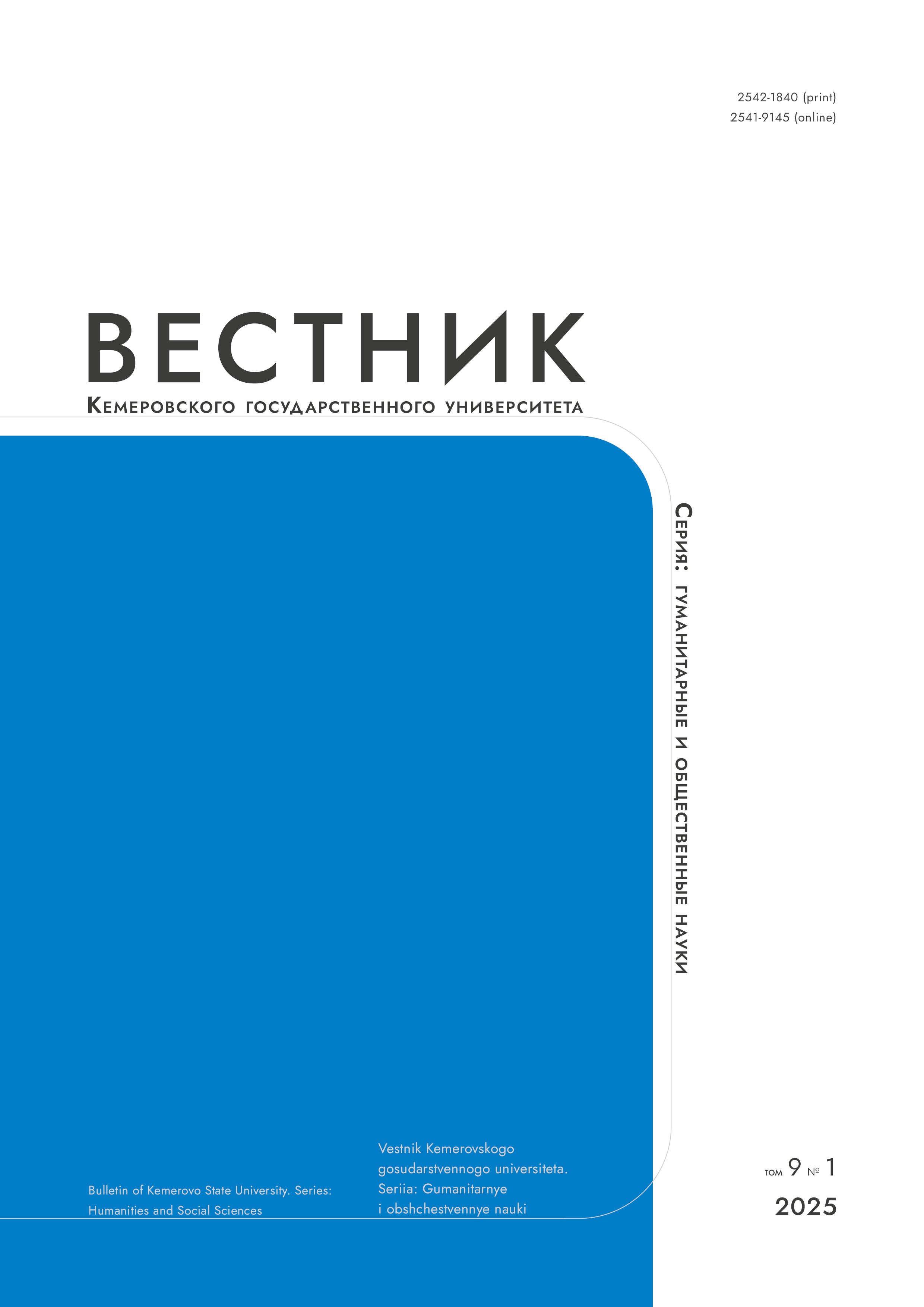from 01.01.2018 to 01.01.2019
Kemerovo, Russian Federation
Russian Federation
UDC 37
The research featured the current state of education taking into account the specifics of national features of the implementation of a particular model. The study focused on specific characteristics of education at the beginning of the XXI century and integration of various educational models. The research objective was to identify and theoretically justify the prospects of development and the implementation risks for modern models of education in the world, as well as to prove the effectiveness of the national educational system. The paper describes the features of modern education, including the interaction of numerous local educational environments. The authors studied the mutual use of specific features of innovative environments of one country in the educational space of other countries. The paper contains a list of generalized characteristics peculiar to the educational systems of different countries, e.g. transformability, modelability, openness, adaptability, etc. The study made it possible to define directions of development of the education system in the world educational environment. The authors considered the advantages and disadvantages of each system. They highlighted some models of training that owe their efficiency to certain features. The paper also introduces the problem of development and implementation of the national model of education. A retrospective analysis made it possible to define the features of the formation of the national model at different historical stages, as well as the risks of formation. The article introduces guidelines for the construction of the Russian national model and gives practical recommendations aimed at building the national model of education.
education, modeling, model elements, transformation options, implementation risks
1. Mitina A. M. The development of additional adult education abroad: conceptual analysis. Dr. Ped. Sci. Diss. Abstr. Volgograd, 2005, 44. (In Russ.)
2. Korneeva N. A. The state and trends in the development of distance education at Russian universities. Cand. Sociol. Sci. Diss. Abstr. Moscow, 2007, 25. (In Russ.)
3. Vlasova O. Yu. Models of the educational policy of modern European states: a comparative analysis. Cand. Polit. Sci. Diss. Abstr. Moscow, 2015, 24. (In Russ.)
4. Isaeva O. N. World education as a system. Cand. Ped. Sci. Diss. Abstr. Ryazan, 2009, 23. (In Russ.)
5. Zanten A. van. Neo-liberal influences in a 'conservative' regime: the role of institutions, family strategies, and market devices in transition to higher education in France. Comparative education, 2019, 55(3): 347-366. DOI: https://doi.org/10.1080/03050068.2019.1619330
6. Buckner E. The Internationalization of Higher Education: National Interpretations of a Global Model. Comparative Education Review, 2019, 63(3): 315-336. DOI: https://doi.org/10.1086/703794
7. Kondratenko B. A. Personalisation of vocational training using information and communication technologies. Cand. Ped. Sci. Diss. Abstr. Kaliningrad, 2015, 28. (In Russ.)
8. Lo W. Y. W. Soft power, university rankings and knowledge production: distinctions between hegemony and self-determination in higher education. Comparative Education, 2011, 47(2): 209-222. DOI:https://doi.org/10.1080/03050068.2011.554092
9. Levites D. G. Theoretical foundations of educational technology modelling in postgraduate education. Dr. Ped. Sci. Diss. Abstr. St. Petersburg, 1998, 52. (In Russ.)
10. Ilinskaya Ya. A. Experience in the development of continuing education systems in Russia and abroad. Modern Research of Social Problems, 2015, (2): 57-67. (In Russ.) DOI:https://doi.org/10.12731/2218-7405-2015-2-2
11. Zhirina M. V. Features of reforming the system of Russian higher education at the present stage. Cand. Sociol. Sci. Diss. Moscow, 2015, 161. (In Russ.)
12. Rutkevich E. D. The typology of social character by D. Riesman. Sotsiologicheskie issledovaniia, 1993, (3): 118-121. (In Russ.)
13. Murtonen M., Gruber H., Lehtinen E. The return of behaviourist epistemology: A review of learning outcomes studies. Educational Research Review, 2017, 22: 114-128. DOI: https://doi.org/10.1016/j.edurev.2017.08.001p
14. Kolb A. Y., Kolb D. A. Experimental learning theory bibliography 1971-2001. Boston, MA.: McBer and Company, 2001. Available at: http://trgmcber.haygroup.com/Products/learning/bibliography.htm (accessed 10.11.2019).
15. Brookfield S. D. Powerful techniques for teaching adults. Jossey-Bass, 2013, 304.
16. Boud D., Keogh R., Walker D. Promoting reflection in learning: a model. Boundaries of Adult Learning, eds. Edwards R., Hanson A., Raggatt P. N. Y.: Routledge, 1996, 32-57.
17. Rutkevich M. N. Education of the population of Russia at the end of the XIX - early XXI. Moscow: ISPI RAN, 2007, 72. (In Russ.)
18. Parreira do Amaral M., Zelinka J. Lifelong learning policies shaping the life courses of young adults. An interpretative analysis of orientations, objectives and solutions. Comparative Education, 2019, 55(3): 404-421. DOI: https://doi.org/10.1080/03050068.2019.1619333
19. Andreev A. Yu. "National model" of university education: emergence and development (Part 1). Vysshee obrazovanie v Rossii, 2005, (1):156-169. (In Russ.)
20. Corcoran R. P., Cheung A. C. K., Kim E., Xie C. Effective universal school-based social and emotional learning programs for improving academic achievement: A systematic review and meta-analysis of 50 years of research. Educational Research Review, 2018, (25): 56-72. DOI: https://doi.org/10.1016/j.edurev.2017.12.001
21. Hwang S. W., Kwon Y. A. An Exploration of Curriculum Development Directions Through an Analysis of University Students' Awareness of Core Competence. The Asia-Pacific Education Researcher, 2019, 28(3): 213-227.
22. Jacob W. J., Gokbel V. Global higher education learning outcomes and financial trends: Comparative and innovative approaches. International Journal of Educational Development, 2018, 58: 5-17. DOI:https://doi.org/10.1016/j.ijedudev.2017.03.001
23. Sutin S. E. Reforming higher education from within: Lessons learned from other mature sectors of the economy. International Journal of Educational Development, 2018, 58: 18-25. DOI: https://doi.org/10.1016/j.ijedudev.2016.11.003


















